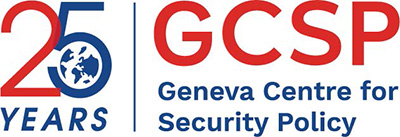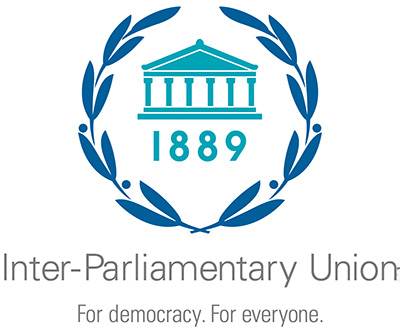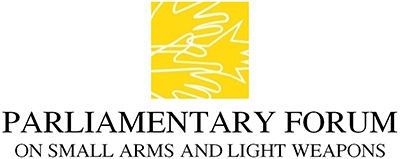Chapter overview:
- INTRODUCTION
- BUILDING COOPERATION WITH MAYORS
- ENSURING PARTICIPATION OF WOMEN IN PEACE AND DISARMAMENT
- BUILDING COOPERATION WITH RELIGIOUS LEADERS AND COMMUNITIES
- ENGAGING AND EMPOWERING YOUTH
- DISARMAMENT EDUCATION
- PARLIAMENTARY EVENTS TO COMMEMORATE UN DAYS
- UNITED NATIONS, TREATY BODIES AND PARLIAMENTARY ORGANISATIONS
- REGIONAL PARLIAMENTS AND INTER-PARLIAMENTARY ORGANISATIONS
Parliamentarians cannot achieve disarmament by themselves. Successful and sustainable disarmament policies will require engagement of and with other key actors. This section focuses on parliamentary action to educate and engage key constituencies in disarmament processes and to strengthen the partnerships between parliamentarians, inter-parliamentary organisations and the United Nations.
Recommendations:
- Engage with key constituencies including mayors and other legislators, women, youth, religious leaders, business leaders, industry experts, academics and other civil society representatives, when undertaking disarmament events and actions;
- Advance disarmament in regional parliaments and inter-parliamentary organisations (see Info box 6: Regional parliaments and Inter-parliamentary organisations below);
- Engage in UN disarmament processes as part of national delegations or parliamentary delegations;
- Support the national implementation of disarmament and non-proliferation education;
- Organise parliamentary events or motions to observe UN Days related to disarmament.
Relevant international agreements and UN resolutions:
- UN Security Council Resolution 2250 on Youth, peace and security, 2015
- UN Security Council Resolution 2419 on Youth, conflict prevention and conflict resolution, 2018
- UN Security Council Resolution 1325 on Women, peace and security, 2000
- UN Security Council Resolution 2493 on Women, peace and security, 2019
- UN General Assembly resolution on Youth, Disarmament and Non-proliferation, 2019
- UN General Assembly resolution on Women, disarmament, non-proliferation and arms control, 2018
- United Nations Study on Disarmament and Non-Proliferation Education, adopted by UNGA resolution A/57/124, 2002
Examples of good parliamentary practice:
BUILDING COOPERATION WITH MAYORS
European appeal of mayors and parliamentarians
On January 29, 2019, mayors, parliamentarians, policy experts and civil society representatives from forty countries – mostly Europe and North America – sent an open letter, the Basel Appeal for Disarmament and Sustainable Security, to Presidents Putin and Trump and to the leaders of the Russian and US legislatures.
The letter called on them to preserve the Intermediate-Range Nuclear Forces (INF) Treaty, prevent a new nuclear arms race in Europe and undertake measures to reduce the risk of a nuclear conflict and support global nuclear disarmament.
Legislators in nuclear armed States have a specific role to prevent authorization and funding for new more sophisticated and usable nuclear weapons that increase the risk of destruction of humanity by accident, miscalculation or intent.
Paul Quiles (France), Mayor of Cordes sur Ciel, President of Initiatives pour le Désarmement Nucléaire, and Former Defence Minister of France.
Mayors and parliamentarians, especially those of us from Europe, will not sit idly on the side while the US and Russia erode our security. Cities and parliaments are therefore taking action to support nuclear arms control treaties such as the INF and START treaties, promote additional measures such as no-first-use and the new Treaty on the Prohibition of Nuclear Weapons, and to put an end to city and state investments in nuclear weapons corporations.
Thore Vestby (Norway), Vice-President of Mayors for Peace. Former Mayor of Frogn and Member of the Norwegian parliament.
ENSURING PARTICIPATION OF WOMEN IN PEACE AND DISARMAMENT
The UN Secretary-General’s report Securing our Common Future, notes the importance of gender and disarmament, including to empower women and ensure their equal and meaningful participation in disarmament and arms control decision-making processes. This can lead to more inclusive, effective and sustainable policy outcomes.
Bougainville peace and arms disposal agreement, 2001
From 1988 to 1998, a civil war was fought in Bougainville, a province of Papua-New Guinea (PNG), between the PNG military and the secessionist forces of the Bougainville Revolutionary Army (BRA). The conflict resulted in the deaths of approximately 20,000 Bougainvilleans. The PNG military fought with weapons bought from Australia, Belgium, the UK and the US. The BRA fought mostly with weapons left in Bougainville by the Japanese in the Second World War. The inclusion of women (primarily non-combatants) in the peace negotiations was instrumental in achieving a peace and small arms disarmament/disposal agreement in 2001, and in assuring its sustainability. See The role of women in promoting peace and reconciliation, Lorraine Garasu, in Women building peace, 2013 and Soldiers Without Guns – Women of Bougainville, 2019.
UN SC resolution 1325 stresses the essential role of women in peace making and conflict resolution. COVID-19 has exposed our vulnerabilities as nation states. Global security is not achievable by war and military might. It requires global cooperation and mutual trust. Women parliamentarians call for multilateralism to replace conflict and for spending on arms to be redirected to building strong responses to health and climate disasters. We are stronger together.
Hon. Hedy Fry, P.C., MP. (Canada). Special Representative on Gender Issues for the OSCE Parliamentary Assembly.
International women legislators’ appeals for peace and disarmament, 2008 and 2018
In 2008, the five Co-Presidents of Parliamentarians for Nuclear Non-Proliferation and Disarmament (PNND), all of whom were women, released a joint appeal The priority of peace and disarmament for the global community, on Women’s International Day for Peace and Disarmament (May 24) and presented it to the NATO Parliamentary Assembly in Berlin. The appeal highlighted the goals of the United Nations for a world of peace and security through disarmament, called on all countries to join the international treaties banning landmines and cluster munitions, urged nuclear-reliant states to build security without reliance on nuclear weapons and highlighted the importance of involving women at all levels of conflict resolution and peace-making as promoted by UN Security Council Resolution 1325.
In 2018, PNND organised a similar appeal, Common security for a sustainable and nuclear-weapon-free world, endorsed by over 50 leading women legislators from around the world, which also commemorated the 175th birthday of Bertha von Suttner, the first women to receive the Nobel Peace Prize. The appeal was presented to the United Nations.
The United Nations was established with an array of mechanisms through which nations can resolve conflicts, negotiate disarmament and achieve security through diplomacy not war. These have been supplemented by additional common security mechanisms such as the Organisation for Security and Cooperation in Europe. A better use of these mechanisms could help facilitate nuclear disarmament.
Baroness Sue Miller, UK House of Lords. Endorser of Common Security for a sustainable and nuclear-weapon-free world
IPU policy on gender representation
Since 2003, the Inter-Parliamentary Union has implemented a policy of sanctions on parliamentary delegations to the IPU Assemblies that do not include both male and female representatives on their delegations. The sanctions imposed amount to a reduction in the voting power of delegations that are single-gender. This has helped build gender-parity on parliamentary delegations to the assembly and in the various committees, including the Standing Committee on Peace and International Security, which deliberates on disarmament issues. In 2017, the IPU also adopted guidelines on gender representation on panels, including panels relating to peace and disarmament.
BUILDING COOPERATION WITH RELIGIOUS LEADERS AND COMMUNITIES
Joint appeal and events of legislators and religious leaders, 2015-2017
On August 6, 2015, in commemoration of the 70th anniversary of the nuclear bombing of Hiroshima, a group of mayors, parliamentarians and religious leaders released a joint appeal in Hiroshima, A Nuclear-Weapon-Free World: Our Common Good, calling upon world leaders to commit to nuclear abolition and to replace nuclear deterrence with shared security approaches to conflicts. The appeal, which highlighted the complementary roles of mayors, parliamentarians and religious leaders to advance nuclear abolition, was presented to various UN forums (Open Ended Working Group, UN General Assembly, Non-Proliferation Treaty review meetings) in conjunction with joint events involving mayors, parliamentarians and religious leaders from 2015-2018.
ENGAGING AND EMPOWERING YOUTH
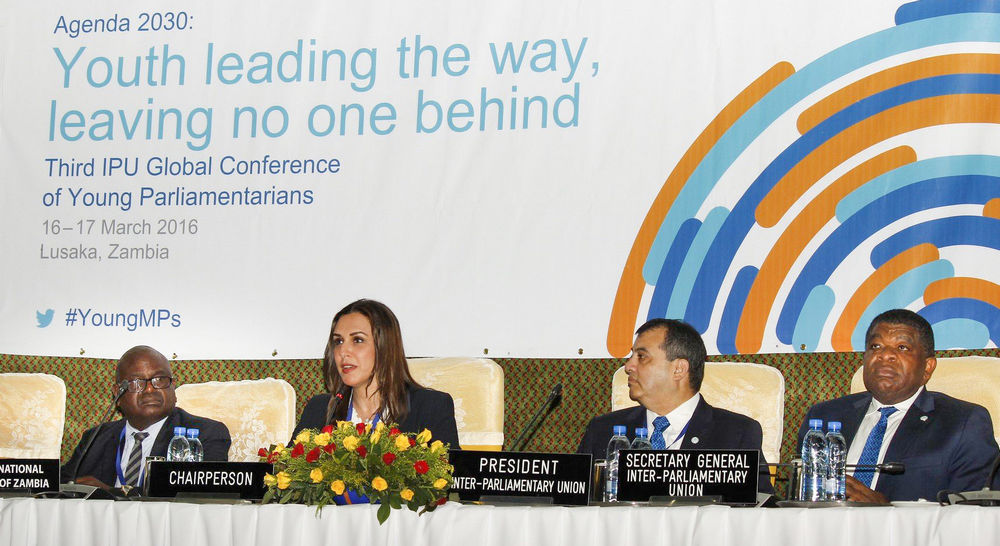
IPU Forum of Young Parliamentarians
In 2013, the Inter-Parliamentary Union established a Forum of Young Parliamentarians to boost the participation of young people in parliaments and to help ensure young MPs play a full part in discussions and action on issues addressed by parliament, including peace, disarmament and security. Amongst the events organised by the Youth Forum to date, is the 3rd IPU Global Conference of Young Parliamentarians held in Lusaka, Zambia in March 2016, which focused on peace, disarmament and sustainable development.
DISARMAMENT EDUCATION
New Zealand: Disarmament education and the United Nations
The New Zealand Parliament, in its Nuclear Weapon Free Zone, Arms Control and Disarmament Legislation 1987, established a Public Advisory Committee on Disarmament and Arms Control with one of the tasks to support public education on disarmament and arms control. The Committee administers two funds – the Peace and Disarmament Education Trust (PADET), which is financed from compensation money from the French government for their terrorist act in 1985 against the Greenpeace ship in Auckland harbour, and the Disarmament Education United Nations Implementation Fund (DEUNIF), established by direct budget vote to implement the recommendations of the 2002 UN Study on Disarmament and Non-proliferation Education.
Bahrain: Scientific Research Award on curbing the proliferation of weapons of mass destruction
In 2020, the Bahrain parliament and the Bahrain Foreign Ministry established a Scientific Research Award on curbing the proliferation of weapons of mass destruction. The award aims to support research on non-proliferation by university students in the Kingdom of Bahrain undertaking Master’s and Bachelor’s programmes in the fields of chemical engineering, political science or international relations.
PARLIAMENTARY EVENTS TO COMMEMORATE UN DAYS
The United Nations designates specific days (and also specific weeks, years and decades) to mark particular events or topics in order to promote awareness about, and action on, the issues and relevant UN objectives and initiatives. There are a number of United Nations Days/Weeks related to disarmament including the International Day Against Nuclear Tests (August 29), International Day of Peace (September 21), International Day for the Total Elimination of Nuclear Weapons (September 26) and UN Disarmament Week (October 24-30). (See Appendix VII for a full list.) Examples of parliamentary events/actions to commemorate these days include:
International Day for the Total Elimination of Nuclear Weapons
On September 29, 2015, the Jordan Senate held a special event to commemorate the International Day for the Total Elimination of Nuclear Weapons. The event, which was attended by all senators, included a screening of movie The Man who saved the World, which chronicles the incident on September 26, 1983, when a nuclear weapons exchange nearly occurred due to satellite information received by the Russian nuclear command and control centre, falsely indicating an incoming US nuclear attack.
On September 26, 2019, Bill Kidd MSP introduced a motion into the Scottish parliament, co-sponsored by 23 other members of parliament, commemorating the International Day for the Total Elimination of Nuclear Weapons, supporting the call of the UN on states for the total elimination of nuclear weapons for the purposes of peace and security, and highlighting the Move the Nuclear Weapons Money campaign to drastically reduce the $100 billion spent on nuclear weapons globally, and shift these resources to help end poverty, protect the climate and build global peace.
International Day against Nuclear Tests
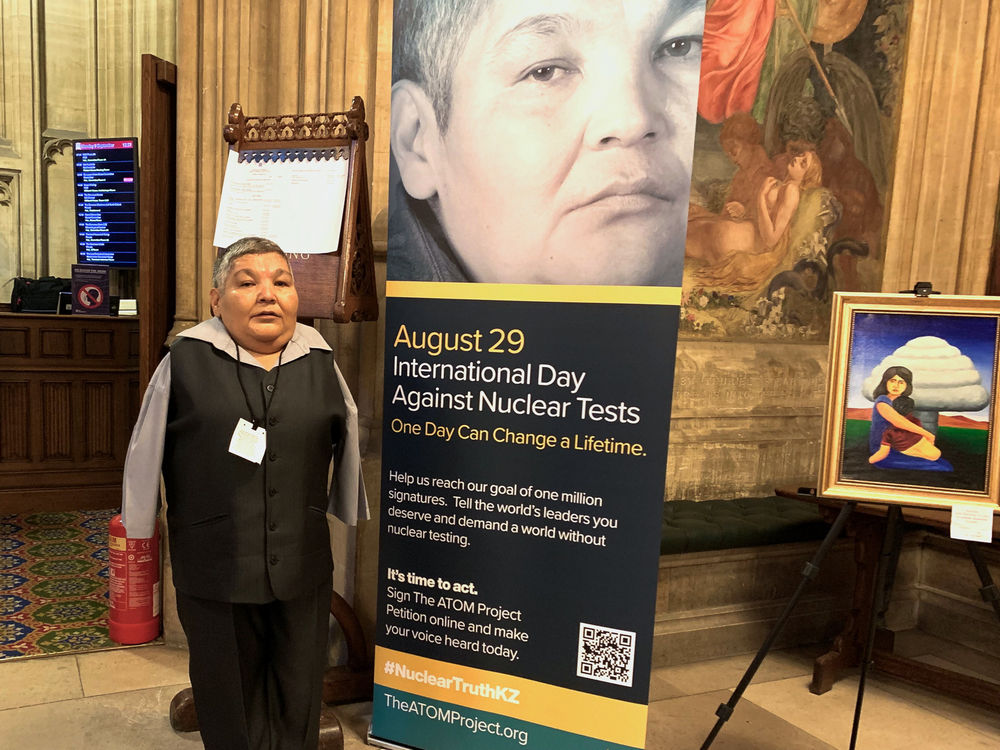
To commemorate the International Day Against Nuclear Tests in 2012, the Parliament of Kazakhstan and PNND organised an international conference in Astana of 120 parliamentarians from 70 countries, including from most of the nuclear-armed States and their allies. The conference launched the ATOM Project, an international campaign to create awareness surrounding the human and environmental devastation caused by nuclear weapons testing. The campaign is led by citizens impacted by the Soviet nuclear tests undertaken in Kazakhstan. In 2019, the ATOM Project, PNND and Mayors for Peace organised a UK tour to commemorate the International Day Against Nuclear Tests, which included an art exhibition by Karipbek Kuyukov, Honorary Ambassador of the ATOM Project, plus other events in the UK Parliament, Scottish parliament and Manchester City Council.
The Atom Project is led by its Ambassador Karipbek Kyukov, the renowned artist who suffered very significant physical effects of nuclear weapons testing in his birthplace of Semipalatinsk, Kazakhstan. I was honoured to host Mr Kyukov and officials from his country in the Scottish Parliament last year, during which time Mr Kuyukov gave a powerful speech and displayed some of his artworks to a large and appreciative audience. The experience of Mr Kuyukov and the millions of others in Kazakhstan impacted by the nuclear tests illustrates the assertation of the First Kazakhstan President Nursultan Narzarbayev that, ‘Winning wars with atomic weapons is an illusion. No one can win, but everyone will lose.’
Bill Kidd MSP, Scotland.
UN Disarmament Week
In 2019, parliamentarians in the UK, US and New Zealand co-hosted Count the Nuclear Weapons Money actions which took place during the seven days of UN Disarmament Week. This involved physically counting out over 500,000 mock notes of $1 million each, representing the global nuclear weapons budget for the next 5 years, and symbolically re-allocating these to the UN Sustainable Development Goals. US Senator Markey and Congressman Earl Blumenauer used the occasion of UN Disarmament Week to re-introduce the Smarter Approach to Nuclear Expenditure (SANE) Act into the US Congress.

UNITED NATIONS, TREATY BODIES AND PARLIAMENTARY ORGANISATIONS
Parliamentarians can make key contributions to international affairs by engaging in international forums to develop cooperative and effective approaches to disarmament issues, and then following up with national implementation. Below are a few examples. A more in-depth discussion on parliamentary engagement in international affairs can be found in the IPU publication Parliamentary Involvement in International Affairs.
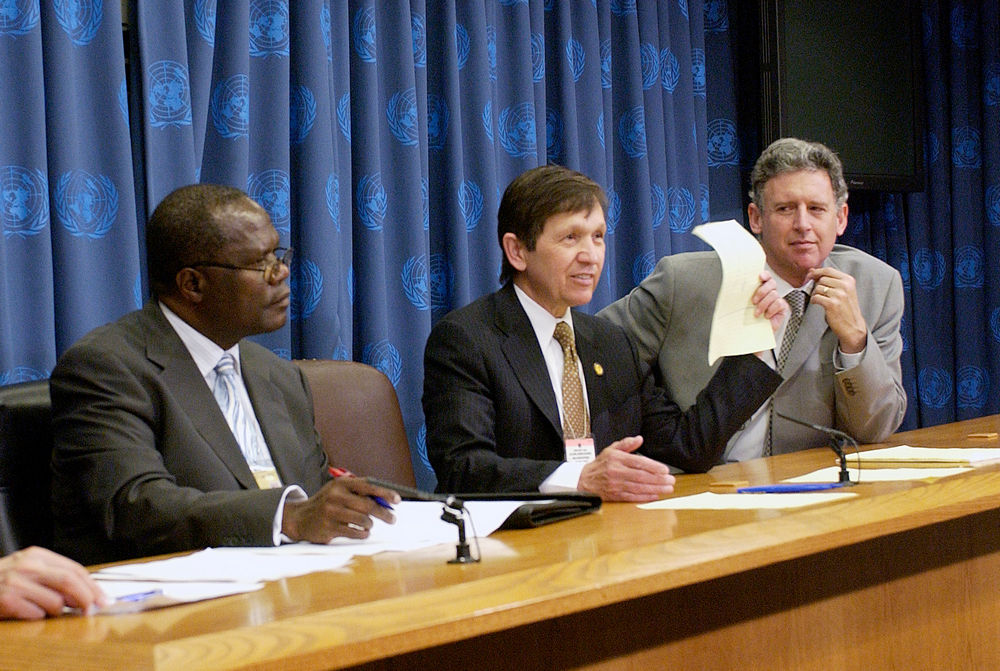
Parliamentary participation in UN and treaty-body meetings
Participation in UN and treaty-body disarmament meetings is an effective way for parliamentarians to build deeper understanding of the issues, processes and government positions. Such an understanding can enable parliamentarians to develop more effective policy approaches to the issues. Some governments make it a practice to include parliamentarians on their delegations to key UN and treaty-based meetings, and this practice is to be encouraged. For other parliamentarians, participation can be possible by joining the delegation of a relevant parliamentary organisation or civil society organisation that has credentials for the meeting.
IPU Annual UN Hearings
The Inter-Parliamentary Union holds an annual meeting at the UN to inform and engage member parliaments of key UN issues and processes, including those related to disarmament. Parliamentarians are encouraged to make use of this opportunity, either as a member of their parliament’s delegation to the IPU UN Hearings, or through consultation with the delegation.
United Nations Associations and UNFOLD ZERO
There are also civil society organisations focused on the UN and disarmament, including national United Nations Associations, and UNFOLD ZERO, a platform advancing United Nations initiatives and processes for nuclear disarmament. These civil society organisations welcome engagement with parliamentarians.
REGIONAL PARLIAMENTS AND
INTER-PARLIAMENTARY ORGANISATIONS
Regional parliaments and inter-parliamentary organisations are useful and effective forums for undertaking dialogue, enhancing engagement, sharing good practice and building cooperation amongst parliamentarians and parliaments on disarmament issues, policies and initiatives. Such action helps to build regional and global adherence to, and implementation of, disarmament treaties and agreements.
This handbook already includes examples of effective action from some of the regional parliaments and inter-parliamentary organisations, in particular the Inter-Parliamentary Union, European Parliament and Parliamentary Assembly of the Organisation for Security and Cooperation in Europe. There are many examples of such action in other regional parliaments and inter-parliamentary organisations, which are not able to be included in this handbook for reasons of space, but some of which will be added to the online version. See below for a list of such organisations.
INFO BOX 6:
Regional parliaments and Inter-parliamentary organisations
The following is a list of regional parliaments and inter-parliamentary organisations in which dialogue, engagement and cooperative action of legislators on disarmament and security issues can be undertaken.
- Inter-Parliamentary Union
- Parliamentary Assembly of the Organisation for Security and Cooperation in Europe
- Interparliamentary Assembly of Member Nations of the Commonwealth of Independent States
- European Parliament
- Parliamentary Assembly of the Council of Europe
- Arab Parliament
- Assemblée Parlementaire de la Francophonie
- ASEAN Inter-Parliamentary Assembly
- Conference of Parliamentarians of the Arctic Region
- Latin American and Caribbean Parliament (PARLATINO)
- East African Legislative Assembly
- Parliament of the Economic Community of West African States
- Pan-African Parliament
- Parliamentary Assembly of the Mediterranean

